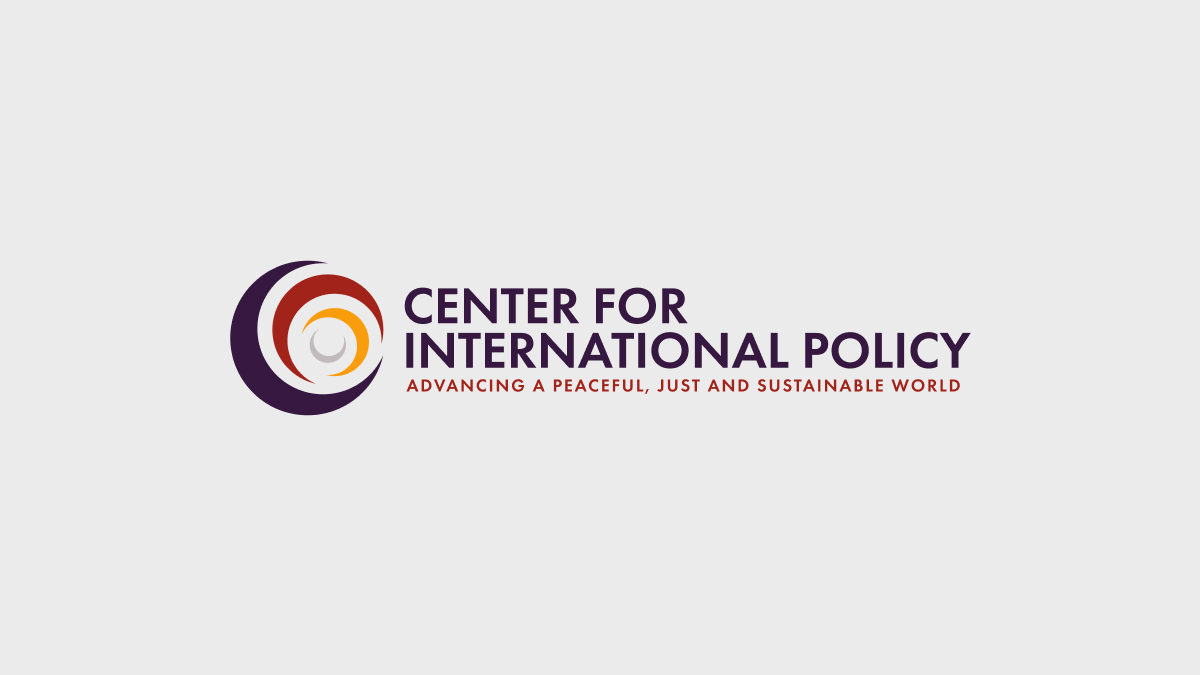
Senate Emergency Appropriations Bill Would Harm US Interests and Values, Human Security in the Middle East
The Center for International Policy commends efforts by Senators supporting vitally important aid to Ukraine to construct a viable legislative vehicle in a Congress rendered increasingly dysfunctional by rising rightwing extremism in its ranks. With Ukraine’s financial and military resources rapidly dwindling as it struggles to repel Russia’s illegal invasion, assistance from the United States is critical. We also commend lawmakers seeking to include more than $10 billion to address dire humanitarian crises around the world.
We therefore regret that, despite the good faith efforts of many lawmakers, the bill as currently written is nonetheless unacceptably unbalanced by provisions that are deeply harmful to US interests and values, as well as human security in the Middle East.
In contrast to Ukraine’s demonstrated need for funds and arms to counter Russia’s expansionist military assault and occupation, the bill’s $14 billion in further US taxpayer funding for weapons for Israel to use in its devastating campaign in Gaza is neither financially, militarily nor morally justified.
With a per capita GDP greater than that of the UK, Canada and Japan – and more than twelve times that of Ukraine — Israel has not made the case to Congress or American taxpayers that it will be unable to carry out essential, legitimate defense activities without such financial assistance. Such extraordinary additional aid the Israeli government is especially inappropriate in light of its ministers continuing to spend Israel’s own funds on projects in illegal West Bank settlements, while urging Israel’s financial institutions to defy new US anti-terrorism sanctions.
While Israel has the right and responsibility to defend its people and take military action in response to Hamas’ horrific October 7, 2023 attack, Israel’s campaign in Gaza is failing to achieve its own stated objectives of rescuing the Israelis taken hostage or “eliminating” Hamas from the territory. Instead, Israel’s disproportionate bombardment and near-total siege of the territory with US weapons has resulted in approximately 27,000 deaths – two-thirds of which Israel itself estimates are civilians – including more than 11,000 children, as multiple Israeli ministers call for the mass forced displacement of Gaza’s residents.
Despite calls by lawmakers for conditions on further military assistance to prevent Israel’s continued use of US arms in a manner that President Biden himself has twice called “indiscriminate,” the proposed bill not only fails to include any such safeguards, but would reduce already insufficient opportunities for Congressional oversight of weapons sales to Israel under federal law. The new White House National Security Memorandum requiring foreign military aid recipients like Israel to adhere to international humanitarian and relevant US law is a step in the right direction, but not a sufficient replacement for durable, statutorily binding safeguards – especially in light of the Biden administration’s repeated resistance to enforcing existing human rights and arms control laws with regard to Israel.
Additionally, as Gaza’s civilian population faces a crisis of starvation and disease, the legislation unconscionably prohibits any of the humanitarian aid it allocates, as well as any previously appropriated aid funding, from being used for contributions to the United Nations Relief and Works Agency for Palestine Refugees in the Near East (UNRWA) – the main provider of lifesaving aid and services in the territory. Far from addressing the growing threat to US and regional security that the war and humanitarian crisis in Gaza represents, this bill would cruelly exacerbate it, while increasing the prospects of the United States being drawn into another costly and avoidable quagmire in the region.
Time and again we have seen the folly of pursuing military measures without transparency or accountability mechanisms and without due attention to civilian well-being. We urge lawmakers to redress these deficiencies in the bill, so that its other components vital to global human security can move forward.
###

